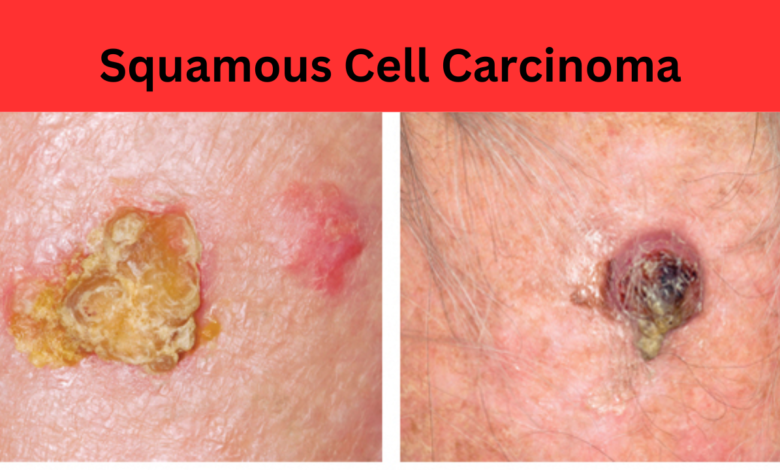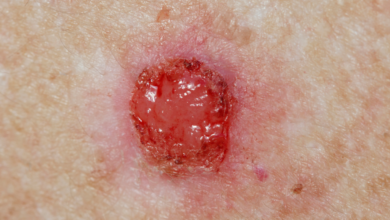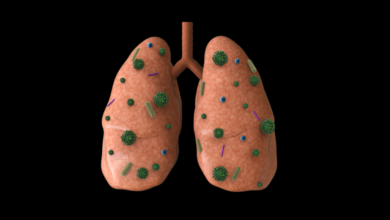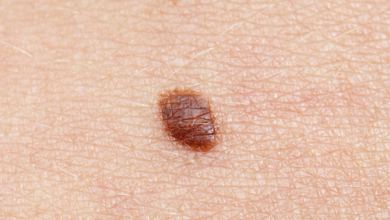Squamous Cell Carcinoma: A Common Type of Cancer
Squamous Cell Carcinoma: Causes, Symptoms, and Treatment

What is Squamous Cell Carcinoma?
Squamous cell carcinoma is a type of cancer that develops in squamous cells, which are flat, scale-like cells that line the surface of many organs and tissues.
Types of Squamous Cell Carcinomas
Squamous cell carcinoma can develop in various parts of the body, including:
• Skin: One of the most common types of skin cancer.
• Lungs: A common type of lung cancer, often associated with smoking.
• Head and neck: Can affect the mouth, throat, larynx, and sinuses.
• Cervix: A type of cervical cancer.
• Other organs: Can occur in the esophagus, anus, and other organs.
Symptoms of Squamous Cell Carcinoma
The symptoms of squamous cell carcinoma can vary depending on the location of the cancer. However, some common symptoms include:
• Skin: A persistent sore that doesn’t heal, a scaly or crusty lesion, or a raised, firm lump.
• Lungs: Cough, chest pain, shortness of breath, and blood in sputum.
• Head and neck: Sore throat, hoarseness, difficulty swallowing, and a lump in the neck.
• Cervix: Abnormal vaginal bleeding or discharge.
Causes of Squamous Cell Carcinoma
The primary cause of squamous cell carcinoma is exposure to ultraviolet (UV) radiation from the sun. Other risk factors include:
• Smoking: A major risk factor for squamous cell carcinoma of the lung and head and neck.
• Human papillomavirus (HPV) infection: Certain types of HPV can increase the risk of squamous cell carcinoma of the cervix and other areas.
• Exposure to certain chemicals or irritants: Exposure to certain chemicals, such as asbestos or arsenic, can increase the risk.
Who Can Suffer from Squamous Cell Carcinoma?
Anyone can develop squamous cell carcinoma, but certain factors increase the risk, such as:
• Fair skin: People with fair skin, light hair, and light eyes are more susceptible to skin cancer.
• History of sunburns: Frequent sunburns can increase the risk of skin cancer.
• Weakened immune system: A weakened immune system can make it harder for the body to fight off cancer.
Diagnostic Tests for Squamous Cell Carcinoma
To diagnose squamous cell carcinoma, a doctor may use a combination of tests, including:
• Physical exam: A physical exam to check for any abnormalities.
• Biopsy: A small tissue sample is removed and examined under a microscope to confirm the diagnosis.
• Imaging tests: CT scans, MRIs, and PET scans can help determine the extent of the cancer.
Stages of Squamous Cell Carcinoma
The staging of squamous cell carcinoma helps determine the extent of the disease and guides treatment decisions. The most common staging system is the TNM system, which considers the size of the tumor (T), the spread to nearby lymph nodes (N), and the presence of distant metastases (M).
Treatment of Squamous Cell Carcinoma
The treatment for squamous cell carcinoma depends on the stage and location of the cancer, as well as the patient’s overall health. Common treatment options include:
• Surgery: To remove the cancerous tumor and surrounding tissue.
• Radiation therapy: To kill cancer cells with high-energy rays.
• Chemotherapy: To kill cancer cells throughout the body.
• Immunotherapy: To boost the body’s immune system to fight cancer cells.
Diet and Squamous Cell Carcinoma Prevention
While a specific diet cannot guarantee prevention of squamous cell carcinoma, a healthy diet can contribute to overall health and reduce the risk of certain cancers. Here are some dietary recommendations:
• A balanced diet: A diet rich in fruits, vegetables, and whole grains can help.
• Limit processed foods and sugary drinks: These can contribute to weight gain and other health problems.
• Maintain a healthy weight: Obesity is linked to an increased risk of certain cancers.
Overall Survival Rate of Squamous Cell Carcinomas
The overall survival rate for squamous cell carcinoma varies depending on the location and stage of the cancer, as well as the individual’s overall health. Early detection and timely treatment significantly improve the prognosis.
Doctor to Consult
The doctor who treats squamous cell carcinoma will depend on the location of the cancer. For example:
• Skin cancer: Dermatologist
• Lung cancer: Pulmonologist or thoracic surgeon
• Head and neck cancer: Ear, Nose, and Throat (ENT) specialist or head and neck surgeon
• Cervical cancer: Gynecologist
Diseases Associated with Squamous Cell Carcinomas
Squamous cell carcinoma is often associated with other health conditions, including:
• Human papillomavirus (HPV) infection: Certain types of HPV can increase the risk of squamous cell carcinoma of the cervix and other areas.
• Chronic inflammation: Chronic inflammation can increase the risk of certain types of squamous cell carcinoma.
• Exposure to certain chemicals: Exposure to certain chemicals, such as asbestos and arsenic, can increase the risk of squamous cell carcinoma.
How to Prevent Squamous Cell Carcinomas
To prevent squamous cell carcinoma, consider the following:
• Limit sun exposure: Minimize sun exposure, especially during peak hours.
• Use sunscreen: Apply broad-spectrum sunscreen with an SPF of 30 or higher.
• Wear protective clothing: Wear hats, sunglasses, and long-sleeved clothing to protect your skin from the sun.
• Avoid tanning beds: Tanning beds emit harmful UV radiation.
• Quit smoking: Smoking is a major risk factor for squamous cell carcinoma of the lung and head and neck.
• Regular check-ups: Regular check-ups with a healthcare provider can help detect any abnormalities early on.
• HPV vaccination: Getting vaccinated against HPV can help protect against HPV-related cancers, including certain types of squamous cell carcinoma.





